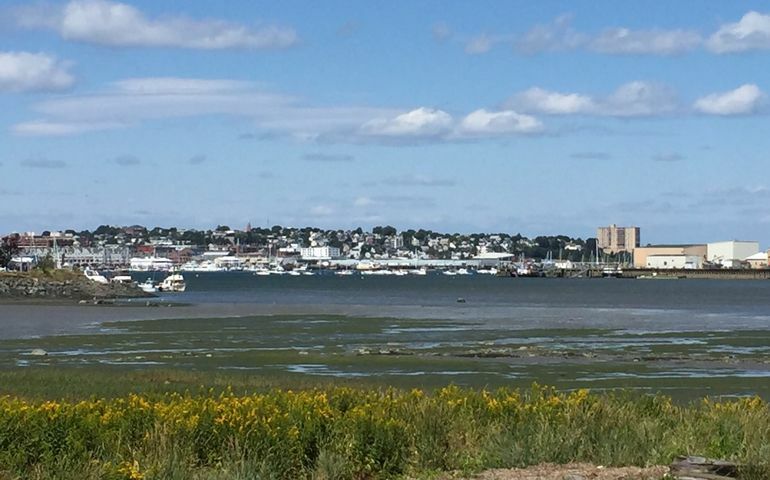10 Casco Bay communities work to mitigate flooding caused by the climate crisis
 File PHOTO / MAUREEN MILLIKEN
Casco Bay communities received federal money to prepare for environmental, social and economic impacts of flooding caused by climate change. Here, Portland is seen across the Fore River from South Portland.
File PHOTO / MAUREEN MILLIKEN
Casco Bay communities received federal money to prepare for environmental, social and economic impacts of flooding caused by climate change. Here, Portland is seen across the Fore River from South Portland.
Ten Casco Bay coastal communities are planning to team up in an effort to prepare for the environmental, social and economic impacts of flooding caused by climate change.
The National Fish and Wildlife Foundation has awarded the Greater Portland Council of Governments $250,000 for the regional initiative. The council has raised an additional $250,000 in matching funds from the Gulf of Maine Research Institute, foundation grants and in-kind donations from municipalities.
The two-year project aims to engage people whose livelihoods are affected by coastal flooding and help community volunteers, municipal staff, elected officials and community leaders plan for nature-based solutions to flooding. Participants will learn about data collection and analysis, research and best practices so they can develop projects that are ready to be designed.
“Now is the time to start planning for the solutions that will ensure our coast can be economically, environmentally, and socially resilient to current and future impacts,” Sara Mills-Knapp, the council’s sustainability program manager, said in a news release. “We know that nature-based solutions to flooding are essential to protecting habitats and communities, and GPCOG looks forward to supporting our municipalities in this important long-term planning effort.”
It’s expected that the National Fish and Wildlife Foundation grant will bring much needed resources to Maine's coastal communities, supporting them in planning for climate impacts and incorporating nature-based solutions, said Gayle Bowness, the Gulf of Maine Research Institute’s municipal climate action program manager.
Examples of those solutions in Maine are salt-marsh restoration, rain gardens, parks and open spaces, beach dune restoration and shoreline protection using natural materials. Natural solutions can be more sustainable and less expensive than hard infrastructure, such as sea walls.
The municipalities involved in the project include Freeport, Falmouth, Cumberland, Yarmouth, Cape Elizabeth, Scarborough, Portland, South Portland, Chebeague Island and Long Island. The Casco Bay watershed includes 1,000 square miles of land and hosts 20% of the state’s population.
The Southern Maine Planning and Development Commission has been running a similar program in York County. The council will be building off that initiative.
The federal money comes from the 2021 National Coastal Resilience Fund. Nationally, the fund will invest $39.5 million in 49 projects designed to strengthen natural infrastructure to protect coastal communities and enhance fish and wildlife habitat. The 2021 grants will advance regionally identified priorities and innovative approaches in 28 states and territories.
GPCOG is a regional planning agency funded by grants and 25 dues-paying member municipalities. Its mission is to help the region adapt and thrive in a world that is quickly changing.
With Portland and South Portland surrounded by water and already affected by rising seas with more frequent flooding, the two cities have already released a climate resilience plan, called One Climate Future. It calls for sweeping changes in how developers and businesses and city government operate in both cities as they implement new sustainability goals over the coming decades.










0 Comments